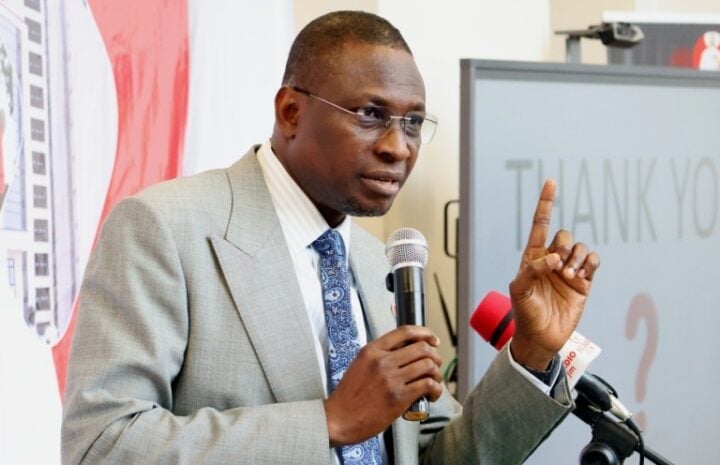Ola Olukoyede
Ola Olukoyede, chairman of the Economic and Financial Crimes Commission (EFCC), says corrupt politicians are increasingly using cryptocurrencies and other virtual assets to conceal illicit wealth and evade detection.
Speaking in Abuja at an event to mark Africa Anti-Corruption Day, Olukoyede described illicit financial flows as a major threat to the continent’s development, driven largely by money laundering and rising virtual asset fraud.
“These flows are coming from diverse criminal activities, with money laundering ranking as the highest,” he said.
“Another rising criminal engagement that has the potential to outpace even money laundering on the continent is virtual assets and investment scams.”
Advertisement
Olukoyede said while virtual assets such as cryptocurrencies and digital tokens are not inherently criminal, they are being exploited by fraudsters to store and move stolen funds under the radar of law enforcement agencies.
“Our findings showed that fraudulent politicians are already perfecting schemes and hiding their loot in cryptocurrencies to beat the investigative dragnets of anti-corruption agencies,” he said.
“Stolen funds and unexplained wealth are being warehoused in wallets, and payments for services are being done through this window.”
Advertisement
He warned that digital investment scams, including Ponzi schemes, are spreading rapidly across Africa and preying on unsuspecting investors.
“Fraudsters are exploiting vulnerabilities of desperate investors to defraud them through various dishonest schemes,” he said.
“Every exploitation of investors in any guise is considered a fraudulent act.”
Citing the EFCC’s investigation and prosecution of the CBEX scam, Olukoyede said the commission is recording breakthroughs in tackling the crimes through proactive training and intelligence gathering.
Advertisement
“We are ahead in every material sense, and there are enormous proofs of operational successes in this regard,” he said.
But he noted that investor negligence continues to fuel the scams.
“The investing public do inadvertently aid fraudulent practices through lack of due diligence on schemes advertised to them,” the EFCC chairman said.
“Another lesson is that investors hardly send suspicious transaction reports to the EFCC until they are defrauded.”
Advertisement
Olukoyede urged Nigerians to deepen their understanding of virtual assets, noting that public awareness and due diligence are critical in preventing fraud.
Advertisement










